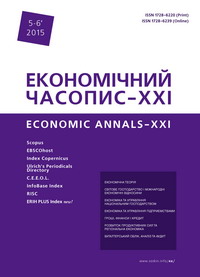Научные кадры в интеграционной парадигме экономики города
Academic staff in city’s economy integration paradigm
Author(s): Andrii KondrashihinSubject(s): Economy
Published by: Institute of Society Transformation
Keywords: PhD; Integration Paradigm; City’s Economy; Intellectual Potential
Summary/Abstract: Introduction. In the 21st century, the integration processes has swept across many countries in the world; the post-Soviet republics are among them. Integration takes new forms. It has a strong influence on productive forces, adopting elements of economic systems to changing environmental conditions; transformations in innovative and intellectual spheres; educational modifications and territorial differences in access to goods and services. Purpose of this article is to study the role of scientific staff in the development and implementation of integration paradigms on the example of Sevastopol’s economy. Results of the research. Academic staff plays an essential role in achieving people’s socio-economic goals in times of transformations shaping the integration paradigm of Sevastopol’s economic development. Scientists calculated the ratio to the number of students, among the cities of Sevastopol where the last place to ensure PhDs (4.6 per 1,000 students) and the first - PhD (34.0). Interpretation of indicators for measuring intellectual property both in quantitative and qualitative terms in correlation with its economic performance makes it possible to have a better understanding of approaches applied to the research methodology. Today it is possible to take control of the academic staff in the higher education system of the city. Conclusion. The role of academic staff in the integration of modern paradigm of the economy of the city is reflected in the professional support of all phases of the adaptive educational system, its conceptualization, strategic rationale, monitoring compliance with public interests in the course of implementation and budgetary discipline.
Journal: Економічний часопис - ХХІ
- Issue Year: 2015
- Issue No: 5-6
- Page Range: 112-115
- Page Count: 4

